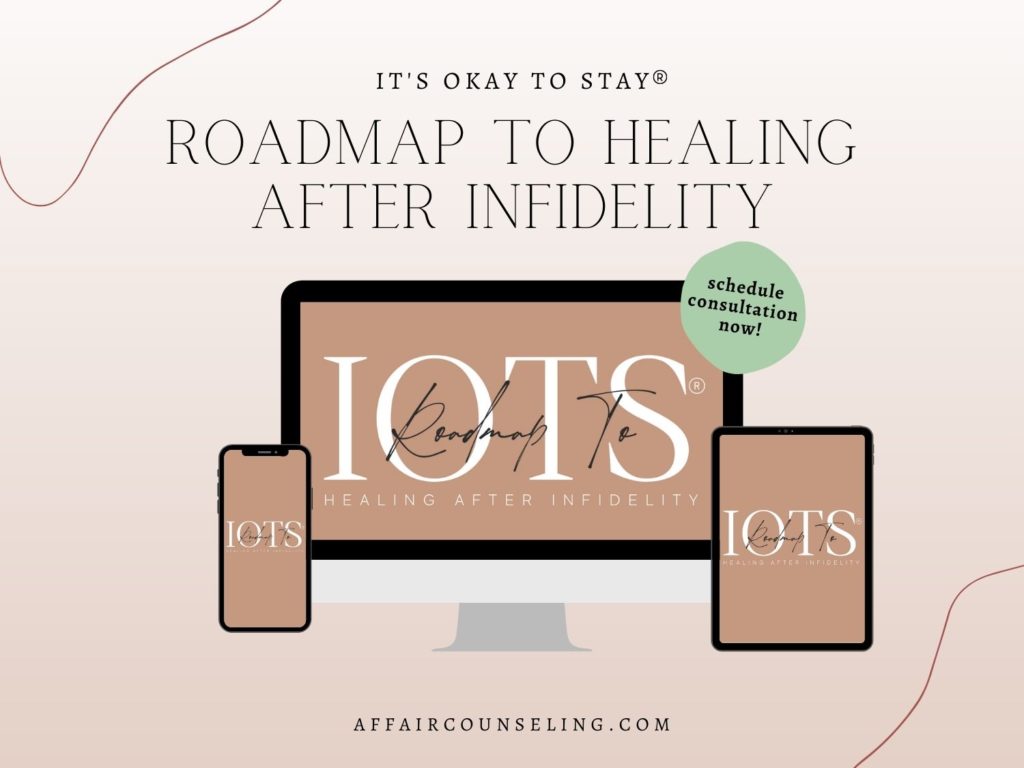We are very excited and thankful to interview psychotherapist and hypnotherapist Douglas Flemons, Ph.D., LMFT. Both Yael (my co-host and in-house therapist) and I, having had the opportunity to learn hypnotherapy and therapy from him in different capacities, greatly appreciated Dr. Flemons’s willingness to meet with us and share his valuable message.
Introducing Douglas Flemons
Recently retired from three decades of teaching Marriage and Family Therapy to graduate students at Nova Southeastern University, Dr. Flemons continues to develop a relational approach to hypnotherapy and therapy. He and his wife, Shelley Green, are co-editors of Quickies: the Handbook of Brief Sex Therapy. They are also co-directors of Context Consultants, their online private practice.
The Heart and Mind of Hypnotherapy
 Dr. Flemons recently released a new book, The Heart and Mind of Hypnotherapy: Inviting Connection, Inventing Change. Yael began our interview by asking him to explain a bit about it and its intended audience.
Dr. Flemons recently released a new book, The Heart and Mind of Hypnotherapy: Inviting Connection, Inventing Change. Yael began our interview by asking him to explain a bit about it and its intended audience.
He shared that the book is largely aimed at clinicians. He believes it is important to challenge the assumptions and practices many people use concerning hypnotherapy within psychotherapy, in general.
In addition, he wanted to provide some guidance on how to work hypnotically with clients. Dr. Flemons shared that another key goal “was to underscore the creativity and the resourcefulness of the people that we’re working with.”
Given his long career and multiple business, academic, and social platforms, I was interested in how he likes to work.
Idit: What is your preferred way of interacting with people? Is it through teaching, writing, or therapy?
Dr. Flemons: For much of my career as a professor, I really enjoyed long-term relationships…seeing the development over a period of time is fabulous. But then teaching workshops is also incredibly satisfying, especially to see people have a sharp learning curve over the course of several days…
Writing is the hardest thing I do but perhaps the most satisfying because it helps me think differently. To work out how to make sense of things and how to translate it on the page. It becomes a conversation with an imaginary reader. The best thing is a combination.
Idit: What about therapy? This is something that you continue to do, right?
Dr. Flemons: Yes, it’s all virtual now… Since COVID everything has been telehealth. It’s lovely to meet people where they are.
Dr. Flemons noted too that the thread through all of his platforms is engagement. He believes it “is such an honor that people trust us with the heart of their challenges and the strength of their resources.”
Hypnotherapy is Collaboration
Picking up on Dr. Flemons’ idea of connection, Yael shared that popular culture’s portrayal of hypnosis often interferes with her ability to share the practice accurately.
Yael: I sometimes struggle with explaining to my clients what hypnotherapy is because there is fear of the unknown. There is such a misconception about this method based on what people see on TV. Starting with some clarification will be great: what is hypnotherapy?
Dr. Flemons: Yes, that notion of doing something to people comes out in the client’s question, “can you hypnotize me.” It seems a legitimate question. Yet, I’ve never had a client say, “can you therapize me?”… We do therapy with people. Hypnotherapy is the same. It’s a collaboration.
He maintains 2 key points for therapists in this regard:
- Therapists invite the client to a connection or relationship. The difference between a hypnotic relationship and a traditional therapeutic setting is just a matter of degree.
- Grasping, monitoring, and matching the client’s experience matters when working hypnotically. It’s important to do this in such a way that the connection feels important to both therapist and client.
Dr. Flemons also explains that connection releases us from scrutinizing a possibility we’re offered.
Dr. Flemons: You don’t have to scrutinize [an offered possibility]. You are more prone to consider it and take it in, floating that possibility without energy spent on determining whether it is trustworthy. You engage with it.” Essentially, the aim is to create such a connection hypnotically. This allows the therapist to “offer an idea, possibility, or image, that the client can respond to without having to make any effort to respond to it.
With that in mind, I asked Dr. Flemons whether there has to be a distinction between talk therapy and hypnotherapy. He noted that the way we “think about problems, relate to people, and offer ideas is similarly collaborative and informed by the way hypnosis actually works.”
So, What Does Hypnosis Feel Like?

Idit: Is there a way people are supposed to feel as the subject of hypnotherapy?
Dr. Flemons: It varies…Sometimes people say it didn’t feel different from regular therapy. Yet, that can be informed by misconceptions. They will say, “I heard and remember everything you said. I must not have been experiencing hypnosis.” But that’s not the case, the vast majority of people do remember everything. They are not asleep… they can be very much tuned in to what’s transpiring.
“In the Zone”
The difference, he says, is when something hypnotic occurs, the client recognizes that they’re not responsible for purposefully making it happen. Effort or willpower isn’t in play.
Dr. Flemons: If they are misinformed, they assume [hypnosis] is happening to them. Again, however, we are doing something together. Something becomes possible without them intentionally trying to make it happen… That’s ideal for hypnotically informed therapeutic change.
Yael: For inexperienced clients, would it be safe to say that hypnosis is a form of connection on a different level?
Dr. Flemons agreed. He compared the hypnotic experience to the effortlessness of playing a sport or instrument well. He referred to that sense of easy orientation and mind/body connection as being able to “flow” in the experience or of being in “the zone.” The therapist’s job is to create the conditions for the client to “get in the zone.” Then, that shifting of problematic experiences can occur.
Dr. Flemons: It really is a glorious feeling when you are in full experience. You’re absorbed and it’s effortless…
What is the Overlap Between Meditation & Hypnosis?
Yael: Being “in the zone” makes me think of meditation. You’ve been meditating for years and noticed an overlap between meditation and hypnosis. In fact, you devoted a whole chapter to self-hypnosis in your book. Can you talk about that?
Dr. Flemons: Yes, it’s fascinating. I got into hypnosis because of meditation…In that chapter, one of the most important connections I make is that meditators understand how to get conscious purpose out of the way of their ability to connect with themselves.
A mindfulness approach, for example, locks in on the rhythm of your breathing. You aren’t trying to change it. This puts your conscious awareness and your body’s experience in sync. A mind/body bridge happens as a function of the way you’re directing your awareness.
So, he explained, when meditation is interrupted by a thought or physical sensation, we want to recognize it as transitory rather than something to fix. We can maintain an absorbed focus in meditation by acknowledging thoughts or sensations and returning to our breath and the mind-body connection.
Why the Goal of Meditation & Hypnosis Emphasizes Absorption, not a Blank Mind
Often, we hear about meditation or hypnosis only being possible when we clear or empty our minds. Yet, most of us feel intimidated by this idea. Is a “blank” mental state required for effective meditation?
Dr. Flemons reiterated that we don’t want to expend effort to make something happen. He shared, “The moment that there is effort to stop thinking, it isn’t meditating, that’s wrestling.”
Instead, we want to be effortlessly aware that something is already occurring without pushback. Then, the experience is no longer upsetting and alien. We have a bridge to it and a relationship with it.
Hypnosis is very similar. Dr. Flemons suggests that we can use hypnosis instead of
- positioning ourselves against a distressing symptom (such as a panic attack) with determination or medication.
- giving ourselves over to the chaos.
Hypnosis allows us to engage with disruptive problems resourcefully. Nothing then needs to be scary or overwhelming. We aren’t victims. Hypnosis is a valuable third alternative that helps us learn to be adaptive and responsive.
Idit: So, do we need a therapist to help make these connections?
Dr. Flemons: Self-hypnosis is possible but it is “tricky”.How you articulate and undertake the passage to your goal makes all the difference. You must find a way for that path not to be predetermined by your best efforts. The moment there is effort, you have a problem.
Can Meditation or Hypnosis Help Struggling Couples?
 Idit: For our listeners struggling in their relationships, how can meditation/self-hypnosis be beneficial? I think we usually believe that it can help with our relationship with ourselves. I wonder if it also can influence our relationship with our partners.
Idit: For our listeners struggling in their relationships, how can meditation/self-hypnosis be beneficial? I think we usually believe that it can help with our relationship with ourselves. I wonder if it also can influence our relationship with our partners.
Dr. Flemons believes so. He notes that many couples position themselves against each other. Verbally and non-verbally, they communicate disrespect or incredulity (“you’re bad, you’re annoying, you’re an idiot). Essentially, they establish a hard boundary of division, going on the offense instead of connecting.
Both meditation and hypnosis support a shift in the perceived boundaries of the self.
Dr. Flemons: In meditation, you alter the boundaries by which you are safe. In keeping with the mind/body connection, there is a self-other connection that the Buddhists call compassion.
With compassion, couples can reach across divisions and establish connections. Meditation acknowledges the connection between you and everything else. It is a boundary-altering experience:
- We alter the boundary between mind and body.
- We alter the boundary between us and those with whom we struggle.
It’s a different way of achieving emotional safety. In essence, meditation helps couples choose to be responsive instead of reactive. This, of course, aligns with the therapist’s effort to make a safe space for partners.
Through meditation, says Dr. Flemons, a couple can safely become “we” without fear of attack for shifting the unhelpful, defensive boundary.
How Do We Shift from Defending to Engaging?
If compassion is an important part of connecting, what is tapping into compassion like when couples are flooded with emotion?
Idit: When we are in the midst of an argument, it’s really hard to have compassion. Why? Is there some sort of training?
Dr. Flemons: If you are trying to have compassion, you are trying to ski up a mountain! It’s incredibly difficult if you are in the middle of a contentious fight to shift from “I’ve got to defend myself by attacking you” to “I don’t have to defend myself.”
Bringing meditation into a situation that formerly spiraled into painful contention can help you respond differently and prevent escalation. This promotes a new relationship direction.
Curiosity as a Connector
Dr. Flemons also points out that recognizing anger as a demonstration of your partner’s vulnerability is highly beneficial for both partners. This fosters more curiosity about what’s going on with them.
He notes too, that the moment you’re “curious rather than furious”, you no longer apply all that you think you know about what the other person feels, thinks, or believes.
Dr. Flemons: Curiosity is a fabulous connector. It’s very difficult to be both angry and curious at the same time. You are reaching across the divisive boundary you established between you to find it interesting instead of insulting.
He says that doing this allows for legitimacy in the relationship. Your own reaction is legitimate; you don’t have to fight against your anger and struggle to be different. In addition, you can see the legitimacy of your partner’s choices (even if you don’t agree). As a result, they can stop defending themselves and share honestly.
Idit: That’s where we try to get with couples! They don’t have to distinguish between themselves and their partner. They can curiously create and walk new bridges to find out what’s going on with each other.
Dr. Flemons added that to form those emotional bridges, therapists support couples by showing partners that this can happen safely and productively.
How to Deal with the Challenges of Connecting with Your Problems
Yael highlighted a key passage at the end of Dr. Flemon’s book, “You meet clients who are exhausted by the fight they’ve been losing against their problems and you invite them into a relationship with you and their experience that facilitates a shift in orientation.” p.242
Yael: This is something my clients really struggle with…we are so programmed to get rid of something that is uncomfortable, painful, or frustrating. The thought of connecting with it or encountering it is a confusing concept. In the book, you talk about changing the relationship with the problem rather than trying to get rid of it. Can you elaborate a little about it?
Dr. Flemons: It feels impossible. If you said to a client “what we are going to have you do is accept your panic attacks,” they might not last two minutes in your office…They think, “Why would I accept something that is taking me down?”
He explains that people come to therapy with an idea of what their problem is (“I have panic”). To them, it feels alien or outside of them. They feel victimized as the problem takes over.
Thus, he warns that therapists should be aware of how the help they offer may be perceived:
- Any message a therapist sends about accepting the problem can feel like further victimization by an outside force.
- Sharing that they can be resourceful may inadvertently give them the impression that you are criticizing them for being too sensitive or blaming them for the problem.
The Importance of Acknowledging the Strength of an Exhausted Client
Recognize the trial the client has endured. Acknowledging their courage and perseverance is crucial when a client feels weak. It’s vital to recognize that they have incredible grit to fight the way they have.
Dr. Flemons also asserts that therapists do well to suggest a shift in the client’s effort. The client doesn’t have to “get stronger,” they just need to amend the way they employ their strength. The goal is less effort, not more.
Don’t Forget the Third Alternative
Again, it can seem, to struggling clients, that there are only two options for dealing with a problem:
- I must get rid of the problem.
- The problem ruins my life.
It’s vitally important to remember the third alternative. He maintains that the option is to not treat the problem as something they need to do something with. Instead, ask questions about how they are experiencing the problem.
When they share an escalation of spiraling emotions, symptoms, and thoughts a therapist then wants to have the person engage with what’s unfolding in their bodies. They can avoid escalating the agitation by
- helping the person engage their body’s natural attempts to deal with the distress and escalation differently so that they aren’t further upset.
- helping the person engage the actual problem differently.
- helping the person appreciate the natural anxiety response and allow it to dissipate without giving up or losing energy to it.
Infidelity: Can Hypnotherapy Help You Feel Safe Again?
 We wanted to know what role hypnosis can play in infidelity recovery.
We wanted to know what role hypnosis can play in infidelity recovery.
Idit: Clients in the aftermath of infidelity often experience PTSD symptoms such as intrusive thoughts, flashbacks, nightmares, and hypervigilance – Can hypnotherapy be helpful in these situations? How?
Dr. Flemons: It absolutely can help. Those symptoms are coming from a need to feel safe. If you have trust betrayed, making sure that betrayal doesn’t happen again becomes paramount. Relaxing their vigilance feels like opening themselves up to betrayal happening again. It’s important that we help them discover that it can be safe to be relaxed and alert at the same time.
Learning to be Alert and Relaxed is Vital for Trust-building
He shared that so much of what we do in our practice is meant to alter communication in the body and alter communication with each other. This promotes an ability to communicate and deal with problems relationally in ways that they couldn’t before.
Trust can be built because the hurt partner isn’t dealing with blind reassurance or worrying about being betrayed again. Instead, it connects through safe, honest communication about their partner’s vulnerability and struggles.
This, he says, supports an ability to get away from the idea that recovery is all on the hurt partner to get over the betrayal. The betraying partner is not just waiting around for their partner to stop worrying or to start trusting.
Both Yael and I agreed wholeheartedly.
Idit: Most people want to fix themselves and do their own work separately. We try to explain that this is a two-person crisis. It’s a relational problem that needs to be dealt with through inter-relational therapy…
Dr. Flemons noted too, that he “doesn’t necessarily see the work as just individual or relational.” Each person has to figure out what they value and what they can accept and trust and uphold personally.
Also, relaxed alertness and helpful shifts for the hurt partner may be easier individually because the scrutiny of the berating partner feels unsafe.
Idit: That makes a lot of sense. However, I do think many people tend to do their own work separately and none of the relational work.
Dr. Flemons: The last thing I’ll say is, I don’t think of it as “work” or effort…If it’s discovery-oriented, the process can be so fascinating and incredibly satisfying.
Finally, Yael pointed out that Dr. Flemons referred to this process as a learning process rather than a “curing” process. He agreed, noting that hypnotherapy creates conditions for fascinating second-level learning that happens outside of conscious intent.
In time, he concluded, a client’s whole way of being with their therapist, being with themselves, and being with their partner is different as a result.
We are so grateful for Dr. Douglas Flemons’s time with us. If you are interested in learning more about him and his practice, please visit Context Consultants. His book, The Heart and Mind of Hypnotherapy: Inviting Connection, Inventing Change. may be found on the site and on Amazon at any time.
This episode is brought to you by:
Being our Infidelity Recovery Program
Thank you for taking the time to read this post! If you are in need of support, we would be happy to help repair your relationship! Please consider a 45-minute free consultation to see if our infidelity recovery program can help you heal and regain trust. We offer support from our Miami, FL-based counseling practice. To start your recovery journey, please follow these simple steps:
- Visit here to pick a time.
- Meet with us for an in-depth conversation via Zoom.
- Start having your pain heard, and overcome infidelity!
Other Services Offered with Relationship Experts by Idit Sharoni
Our infidelity recovery coaching program isn’t the only service offered at our Miami FL-based counseling practice. Other therapy services our team offers include affair counseling, communication counseling, and online therapy. For more useful relationship information, please visit my podcast.
Watch this episode on our YouTube channel:
Heading

